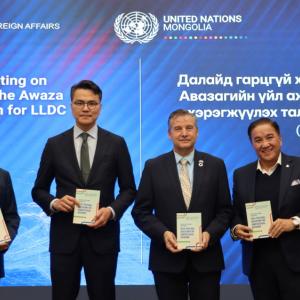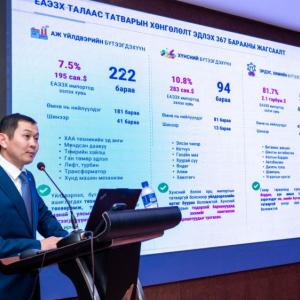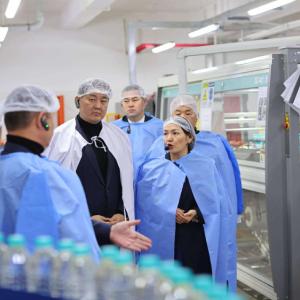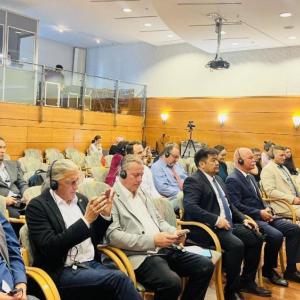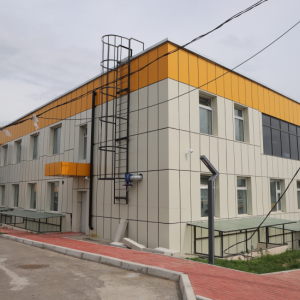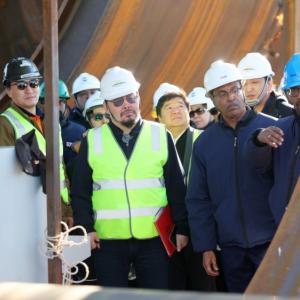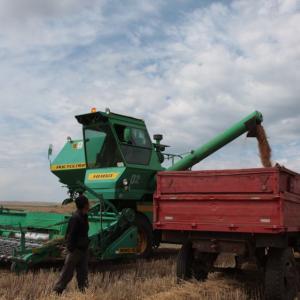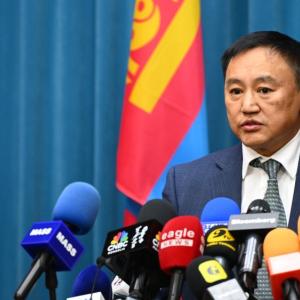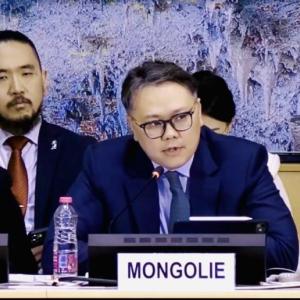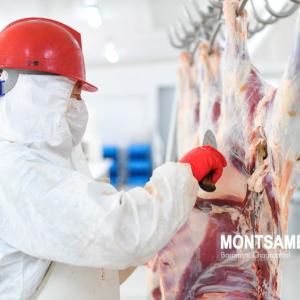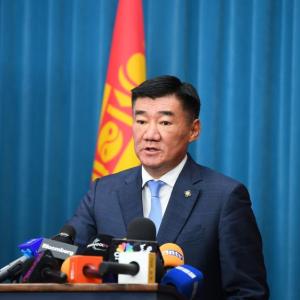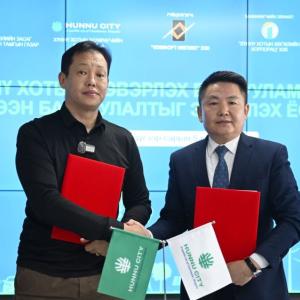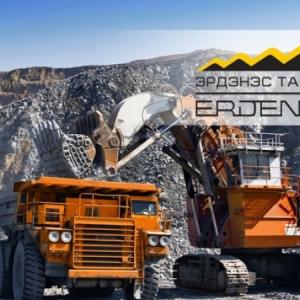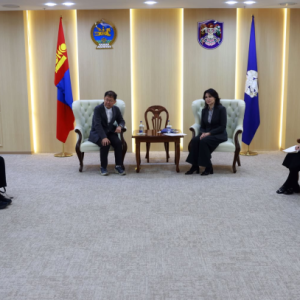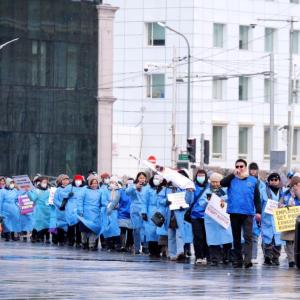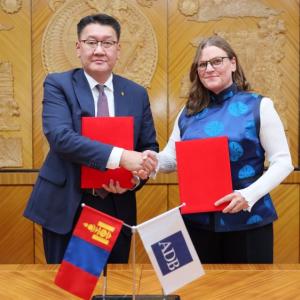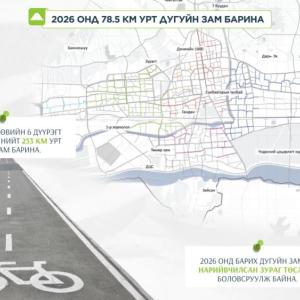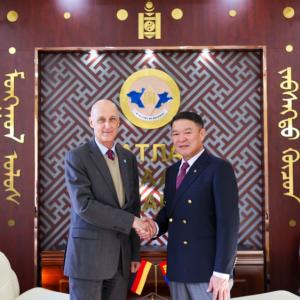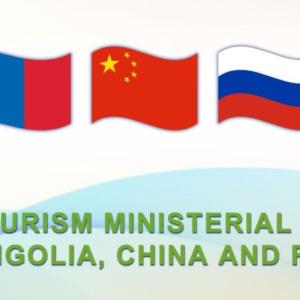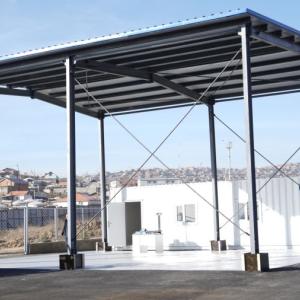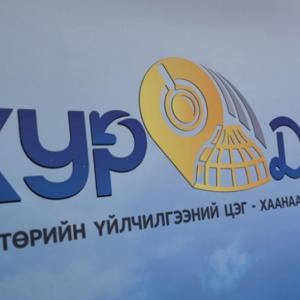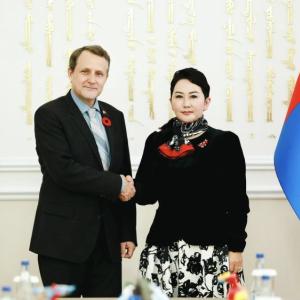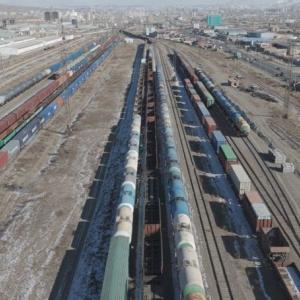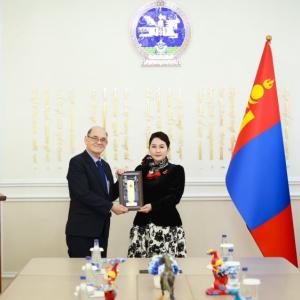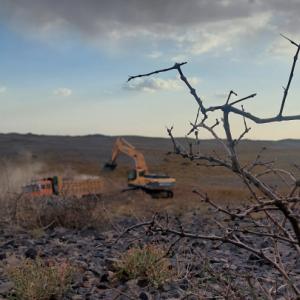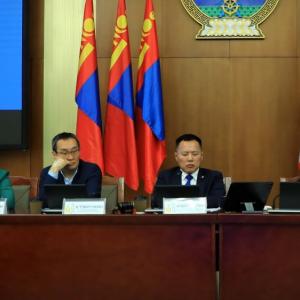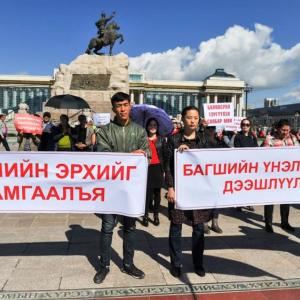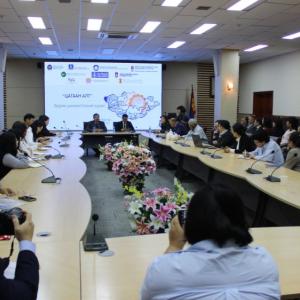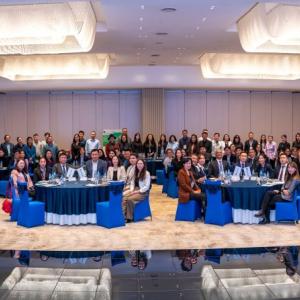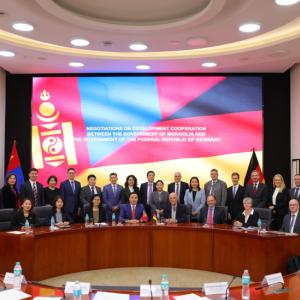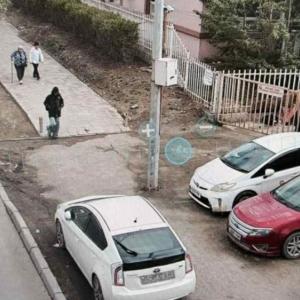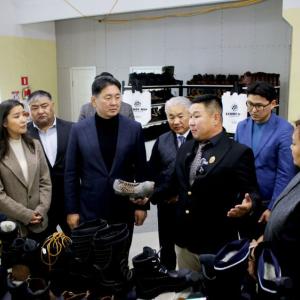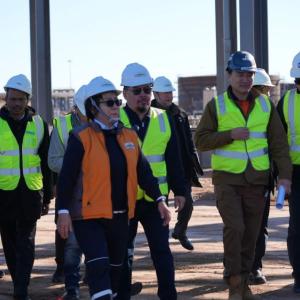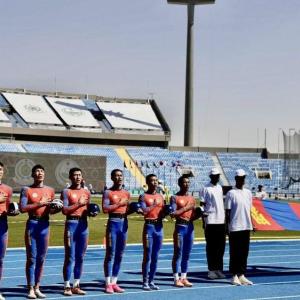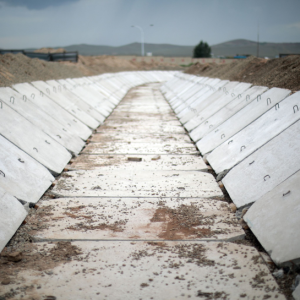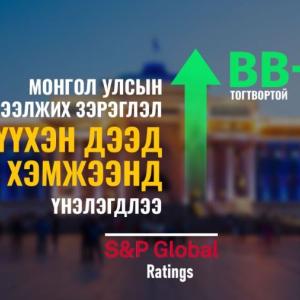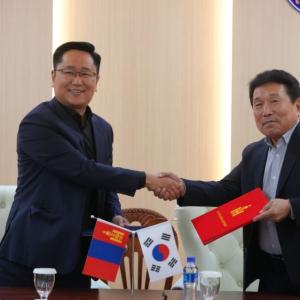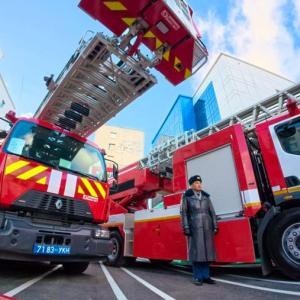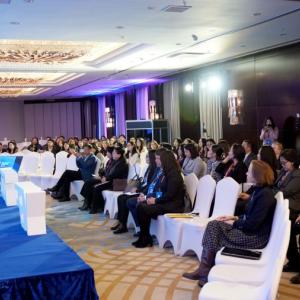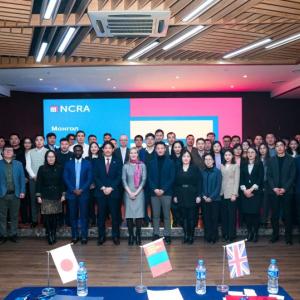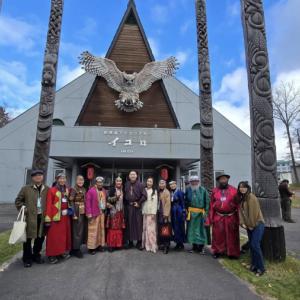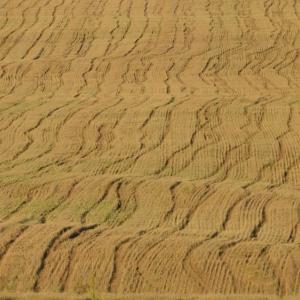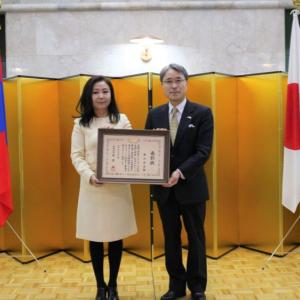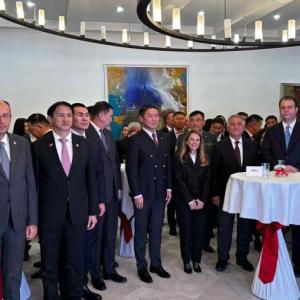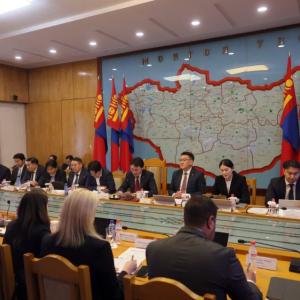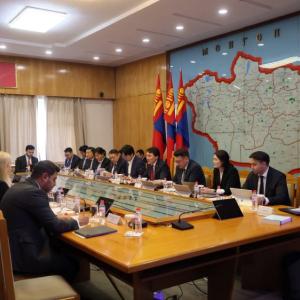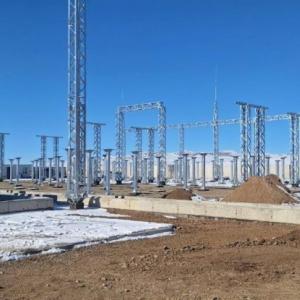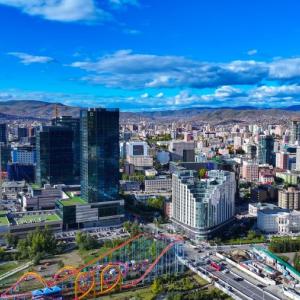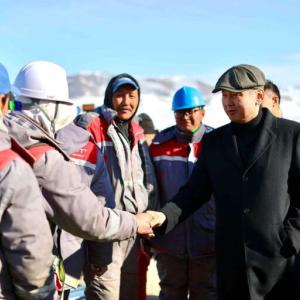Negotiations on road and transportation issues continue with China
The Mongol Messenger
Ulaanbaatar /MONTSAME/ We interviewed J.Bat-Erdene, Minister of Road and Transport Development on policy, agreements and documents established with China for roads, transportation, railways and border checkpoint development during the official visit of Mongolia’s Prime Minister U.Khurelsukh to China.
-The Prime Minister's visit to China had concrete outcomes rather than just talks. Within the scope of the visit several cooperation documents were signed in the road and transportation sector with China. What is the importance of these documents?
-First of all, we made changes to the memorandum of cooperation signed with China in railways, and agreed to expand the cooperation. The amendments were made to realize works agreed during the visit of China's President Xi Jinping to Mongolia in 2014 and expand railway and border checkpoints.
We talked more about the eastern railway. In this regard, Mongolian Railways and Chinese company signed a memorandum to jointly implement the railway project in route from Khuut-Bichigt to Khuut-Choibalsan. In terms of auto transport, we discussed on transit transportation issues and agreed to continue negotiations on making transportation essential for the two countries. Prior to PM’s visit, I visited China at the invitation of the Chinese Minister of Transport to discuss a number of issues and negotiations are still continuing.
-Will the cross-country railway exits increase?
-Erdenet-Ovoot railway will connect to Kyzyl of Tuva and Kuragino railways. This means that we will have two exits to Russia. The capacity of the Zamyn-Uud-Erlian border checkpoint is becoming insufficient. Therefore, we are discussing to open Khangi-Mandal international border crossing. Khangi Mandal is close to the Bugat city which is the economic and industrial region, so we consider it is possible to export coal and iron ore by opening an international border crossing in this route. We have almost reached an agreement on this issue. So we will have two exits each to Russia and China.
-USD 1.5 billion financing from the government to build a railway is impossible. So, who will build the railway, government or the private sector? Initially railways were supposed to be built by the government, but now the private sector is being relied on to build the railway. Does it seem like the Government is avoiding its policy?
-Regulation runs incorrect. It is impossible to build a railway worth USD 1.5 billion by a transportation agency or ministry alone. Coal buyers or mines that sell the coal should cover the cost for the railway construction in order to buy or sell their product. What I am trying to do is relate the project to the Ministry of Mining and Heavy Industry and it is important to look at the project jointly in a comprehensive way. For example, Erdenes Tavan Tolgoi and Energy Resource could jointly finance and take responsibility for building the railway. This policy should be clarified first. What rail should be built, in what route, and whether coordinates are right or wrong are issues for our ministry. However, raising money should be the mining sector’s issue to solve.
Today, ‘Erdenes Tavan Tolgoi’ has no debts and the company is capable of raising money. As owners of the large Tavan Tolgoi mine, they should raise money to build a railway to transport their products.
-At first 'Energy Resources' proposed to build a railway by itself, but the government suspended it. What
is the reason behind it?
-That is the right principle. If I own a mine, I have to decide to whom I should sell my coal and choose which road to use to deliver the coal. The initial principle of "Energy Resources" was to first build a road. Second, they planned to build a railway. Raising money could succeed when the mine company is guaranteed a profit from coal sales transported by rail. So, we will head in the right direction when we follow this principle.
-What arrangements can be made with state owned 'Erdenes Tavan Tolgoi' company?
-'Energy Resources' is a private company and Erdenes Tavan Tolgoi is a state owned company. So, first of all government should solve this issue. Negotiations should be made, estimating the reserve and value of mineral resources, plan coal mining activity, product sales, and offer proposals.
-Then it means that the government decision will not only focus on railways, but also to solve mining and sales issues of Tavan Tolgoi?
-Government should solve the complex issues. This means resolving issues regarding an increase in coal mining and improving product sales of Tavan Tolgoi. The railway issue will be raised in connection with these issues. In other words, the railroad building shall not be seen separately as a transportation sector issue because the issue will be resolved along with coal mining and money issues.
-A new 200km heavy road is to be built from Tavan Tolgoi to Gashuunsukhait. Will this increase coal transportation from Tavan Tolgoi?
-The railway project must be closely linked to mining operations because it is all about transporting mining products. It is the same regarding auto roads. A bid to construct a new 200km heavy road from Tavan Tolgoi to Gashuunsukhait alongside the existing road was announced and the selection process is underway. By building this new road, trucks loaded with coal will use the new road while the existing road will be used for empty trucks going back to the coal mines. The heavy road will be built with a build-own-operate-transfer concession agreement.
-The PM’s visit had a major impact on shortening the long queue at the Gashuunsukhait border crossing. What measures will be taken in the future?
-During the Prime Minister’s visit to China, we discussed increasing coal exportation to China, improving coal transportation, and logistics issues at the Gashuunsukhait border crossing. As a result, we agreed to make investment of CNY 148 billion or USD 24 million for the development of the Gashuunsukhait border checkpoint. Also, we talked about increasing coal exports of Mongolia. As of today, around 900 vehicles are passing the border loaded with coal. The number of vehicles crossing border reached 1500 at its peak. Therefore, we aim to increase coal transportation to the same volume of the peak.
-The Prime Minister's visit to China had concrete outcomes rather than just talks. Within the scope of the visit several cooperation documents were signed in the road and transportation sector with China. What is the importance of these documents?
-First of all, we made changes to the memorandum of cooperation signed with China in railways, and agreed to expand the cooperation. The amendments were made to realize works agreed during the visit of China's President Xi Jinping to Mongolia in 2014 and expand railway and border checkpoints.
We talked more about the eastern railway. In this regard, Mongolian Railways and Chinese company signed a memorandum to jointly implement the railway project in route from Khuut-Bichigt to Khuut-Choibalsan. In terms of auto transport, we discussed on transit transportation issues and agreed to continue negotiations on making transportation essential for the two countries. Prior to PM’s visit, I visited China at the invitation of the Chinese Minister of Transport to discuss a number of issues and negotiations are still continuing.
-Will the cross-country railway exits increase?
-Erdenet-Ovoot railway will connect to Kyzyl of Tuva and Kuragino railways. This means that we will have two exits to Russia. The capacity of the Zamyn-Uud-Erlian border checkpoint is becoming insufficient. Therefore, we are discussing to open Khangi-Mandal international border crossing. Khangi Mandal is close to the Bugat city which is the economic and industrial region, so we consider it is possible to export coal and iron ore by opening an international border crossing in this route. We have almost reached an agreement on this issue. So we will have two exits each to Russia and China.
-USD 1.5 billion financing from the government to build a railway is impossible. So, who will build the railway, government or the private sector? Initially railways were supposed to be built by the government, but now the private sector is being relied on to build the railway. Does it seem like the Government is avoiding its policy?
-Regulation runs incorrect. It is impossible to build a railway worth USD 1.5 billion by a transportation agency or ministry alone. Coal buyers or mines that sell the coal should cover the cost for the railway construction in order to buy or sell their product. What I am trying to do is relate the project to the Ministry of Mining and Heavy Industry and it is important to look at the project jointly in a comprehensive way. For example, Erdenes Tavan Tolgoi and Energy Resource could jointly finance and take responsibility for building the railway. This policy should be clarified first. What rail should be built, in what route, and whether coordinates are right or wrong are issues for our ministry. However, raising money should be the mining sector’s issue to solve.
Today, ‘Erdenes Tavan Tolgoi’ has no debts and the company is capable of raising money. As owners of the large Tavan Tolgoi mine, they should raise money to build a railway to transport their products.
-At first 'Energy Resources' proposed to build a railway by itself, but the government suspended it. What
is the reason behind it?
-That is the right principle. If I own a mine, I have to decide to whom I should sell my coal and choose which road to use to deliver the coal. The initial principle of "Energy Resources" was to first build a road. Second, they planned to build a railway. Raising money could succeed when the mine company is guaranteed a profit from coal sales transported by rail. So, we will head in the right direction when we follow this principle.
-What arrangements can be made with state owned 'Erdenes Tavan Tolgoi' company?
-'Energy Resources' is a private company and Erdenes Tavan Tolgoi is a state owned company. So, first of all government should solve this issue. Negotiations should be made, estimating the reserve and value of mineral resources, plan coal mining activity, product sales, and offer proposals.
-Then it means that the government decision will not only focus on railways, but also to solve mining and sales issues of Tavan Tolgoi?
-Government should solve the complex issues. This means resolving issues regarding an increase in coal mining and improving product sales of Tavan Tolgoi. The railway issue will be raised in connection with these issues. In other words, the railroad building shall not be seen separately as a transportation sector issue because the issue will be resolved along with coal mining and money issues.
-A new 200km heavy road is to be built from Tavan Tolgoi to Gashuunsukhait. Will this increase coal transportation from Tavan Tolgoi?
-The railway project must be closely linked to mining operations because it is all about transporting mining products. It is the same regarding auto roads. A bid to construct a new 200km heavy road from Tavan Tolgoi to Gashuunsukhait alongside the existing road was announced and the selection process is underway. By building this new road, trucks loaded with coal will use the new road while the existing road will be used for empty trucks going back to the coal mines. The heavy road will be built with a build-own-operate-transfer concession agreement.
-The PM’s visit had a major impact on shortening the long queue at the Gashuunsukhait border crossing. What measures will be taken in the future?
-During the Prime Minister’s visit to China, we discussed increasing coal exportation to China, improving coal transportation, and logistics issues at the Gashuunsukhait border crossing. As a result, we agreed to make investment of CNY 148 billion or USD 24 million for the development of the Gashuunsukhait border checkpoint. Also, we talked about increasing coal exports of Mongolia. As of today, around 900 vehicles are passing the border loaded with coal. The number of vehicles crossing border reached 1500 at its peak. Therefore, we aim to increase coal transportation to the same volume of the peak.
G.Tuguldur
 Ulaanbaatar
Ulaanbaatar







